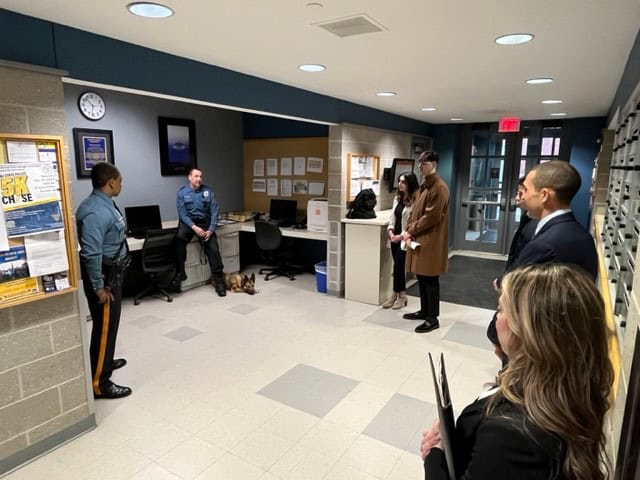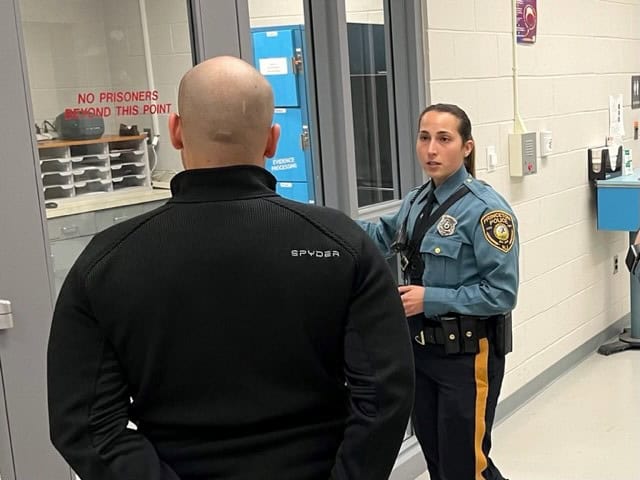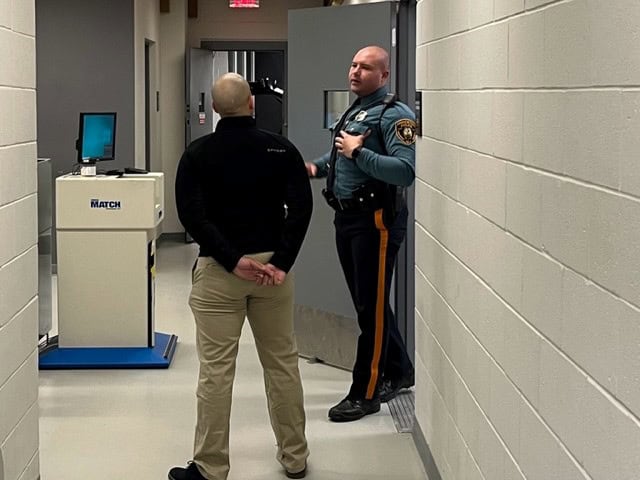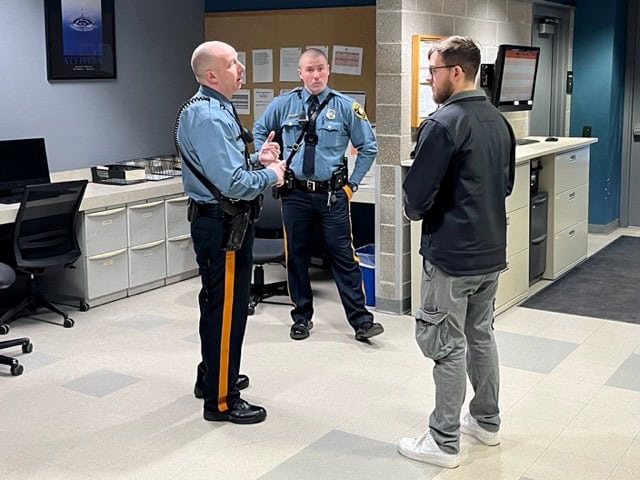Princeton police hold open house for police prospects
Ask Andrew Bauta why he wants to become a police officer, and his answer is simple and direct.
“I want a change,” said Bauta. He is currently a corrections officer at Trenton State Prison.
“Working in a prison is not fun. I want to get out and do more to help people. Being on the street (as a police officer), maybe I can help someone before they get to that bad place.
“Maybe I can share my experiences working in a prison (and tell them) you don’t want to spend your life in prison.”
Bauta was among the 30 or so people who signed up to attend the Princeton Police Department’s first open house March 25.
The prospective police officers toured the Princeton Police Department headquarters at 1 Valley Rd. Guided by police officers, they were shown the Detective Bureau and the interview room, the Traffic Bureau and the Safe Neighborhood Bureau.
The tour included a peek inside the holding cells. They saw the evidence room and the small room where suspected intoxicated drivers are tested. They even visited the gym, where the officers can work out and exercise.



A police officer opened the tailgate on a department SUV (sport utility vehicle) patrol vehicle and explained the equipment that each officer carries in the patrol car – from a halligan tool, which is used when a police officer has to use force to enter a building, to the automatic external defibrillator (AED) that is used to shock a heart attack victim’s heart back into rhythm.
Police Chief Jon Bucchere said the goal of the Princeton Police Department’s open house was to reinvent how it recruits new police officers.
“We want to get the best qualified and most diverse applicants that we can to work as police officers in Princeton for years to come,” Bucchere said.
The Princeton Police Department is authorized to have 53 police officers, but retirements have reduced that number to 48 police officers. There is a need to recruit new police officers to fill the vacancies, said police Captain Christopher Tash.
“There has been a decline nationwide in applications for police officers. We are trying to think of other ideas to boost recruitment, and that’s the reason for the open house. We want them to meet a Princeton police officer,” Tash said.
The Princeton Police Department draws a higher volume of applicants than many police departments, but “we are still down in the number of applicants. The perception of policing has changed,” Tash said.
For those men and women who aspire to become a Princeton police officer, it is a step-by-step process that begins with a physical fitness assessment, Tash said.
If an applicant passes a physical fitness assessment, the next step is a set of interviews with all ranks of police officers and all of the bureaus within the Princeton Police Department, he said.
“We like to bring in other ranks of officers and the bureaus for input on the applicants they may be working with for the next 30 years,” Tash said.
The first interview is a meet-and-greet session, he said. The second interview is a panel-style interview. The applicants are asked more detailed and in-depth questions. Then a background check is conducted.
Once those steps have been completed, a list is drawn up of applicants who will be interviewed by the Public Safety Committee, Tash said. The committee includes the mayor, the administrator and two Princeton Council members.
At that point, a conditional offer of employment may be made, Tash said.
Once a conditional offer of employment has been made and accepted, the recruit is sent to the Mercer County Police Academy for training, Tash said. Classes are offered in February and September.
“It’s a 30-year career,” Tash said.

